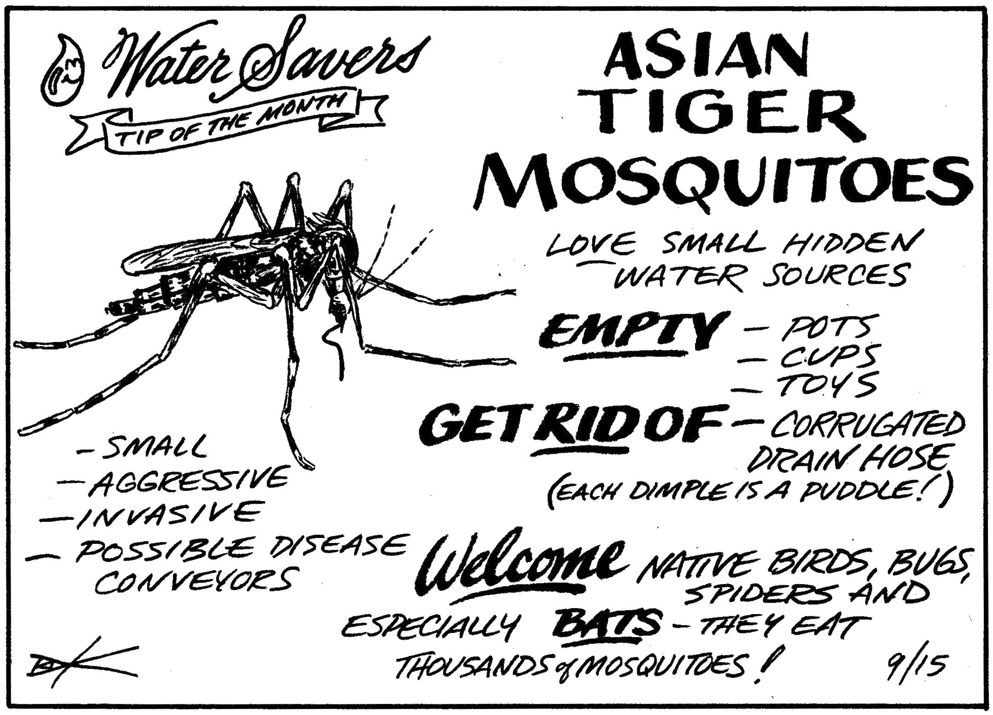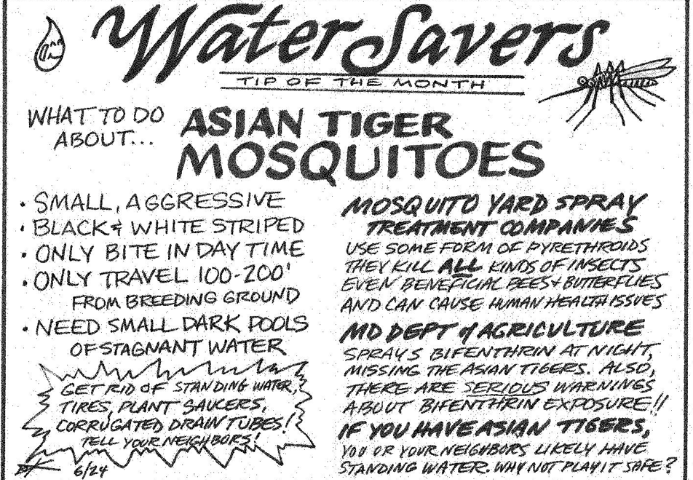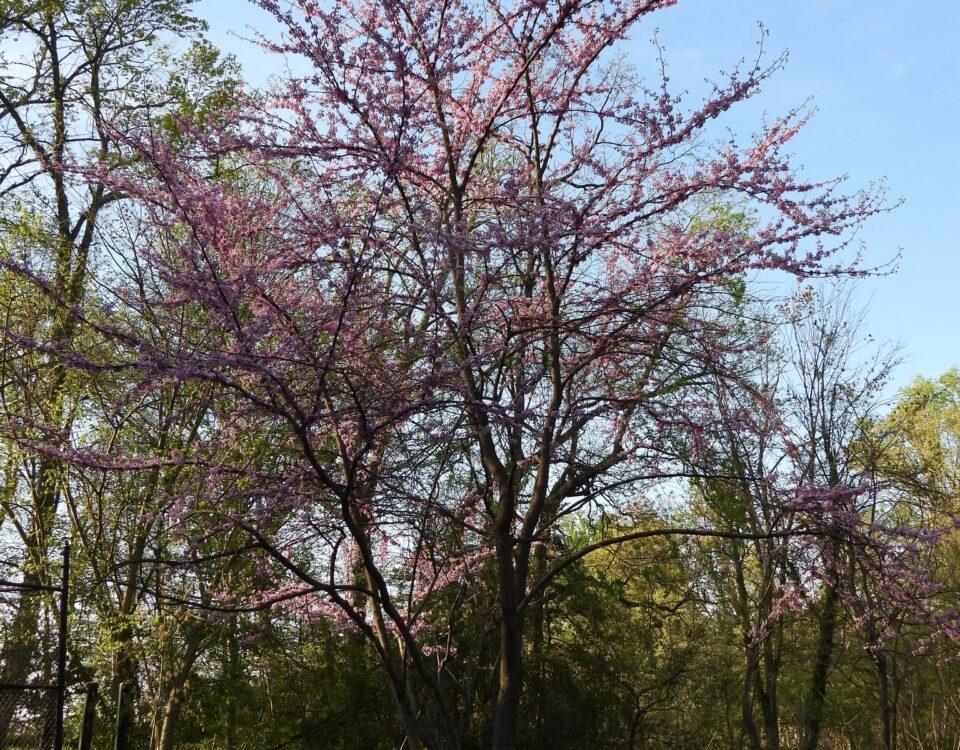
Free Trees!
March 12, 2025The annoying mosquito season is upon us and with that comes the annual spraying of pesticides by the county that our community uses to control/eliminate them. Not only does the spraying not work, it is also killing all the beneficial pollinators we are working so hard to attract to our yards. Insects that are needed for healthy ecosystems. Insects that support the life cycle of birds, which are in a dangerous population decline.
Mosquito spraying is a common public health strategy aimed at controlling the population of disease-carrying mosquitoes. However, it is important to note that not all mosquito species are effectively targeted by these spraying methods, particularly the Asian tiger mosquito (Aedes albopictus).
The Asian tiger mosquito is known for its distinctive black and white markings and aggressive daytime biting behavior. One of the challenges in controlling this species is that it often breeds in small, stagnant water sources, such as flowerpots, discarded tires, and bird baths, which may not be adequately addressed by aerial or ground spraying methods primarily designed for larger water bodies.
Furthermore, many insecticides used in mosquito control are designed to target specific life stages of mosquitoes, particularly the adult stage. Asian tiger mosquitoes may have different behavioral patterns that allow them to evade these treatments. For example, they often rest in shaded areas during the hottest parts of the day, reducing their exposure to sprayed insecticides.
Additionally, the effectiveness of spraying can be compromised by factors such as weather conditions, the presence of non-target species, and the development of insecticide resistance among mosquito populations.
To effectively manage the Asian tiger mosquito, it is essential to employ integrated pest management strategies that combine habitat reduction, targeted larvicides, and community education. This multifaceted approach can help mitigate the risks posed by this resilient mosquito species while enhancing public health outcomes.
Asian tiger mosquitoes (Aedes albopictus) are primarily active during the daytime, particularly at dawn and dusk. They are known for their aggressive biting behavior, especially in shaded areas. While they can be found out at night, their activity levels typically decrease after sunset. The effectiveness of spraying against Asian tiger mosquitoes at night is limited due to their lower activity during that time. To effectively manage them, strategies that focus on their daytime activity and breeding habitats are generally more effective.
These strategies include:
- EMPTY ALL STANDING WATER. Standing water is their breeding ground, even the smallest amount of water can be used.
- Empty corrugated drainpipes of water, draining them after a rain or installing a small window screening to keep them from entering and laying larva.
- Use of Mosquito dunks in small ponds, bird baths and other necessary water sources.
- Opt out of spraying so your yard does not get sprayed – go on the Anne Arundel website for the Exemption Form, Request for Exemption.pdf. Or stop by the CSCIA office to pick one up. The sprayers will not be allowed to spray within a 300-yard area of your property.






